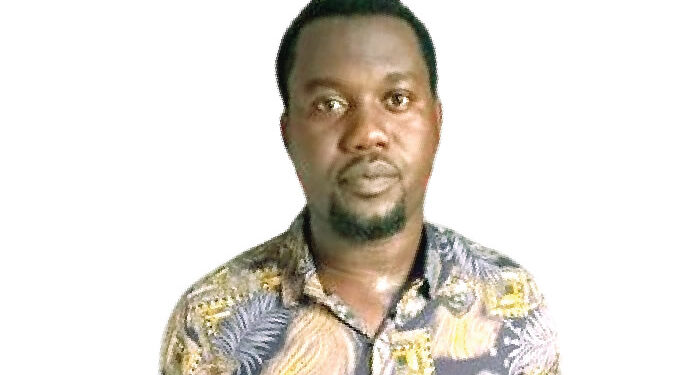Imprisoned within the confines of Kirikiri Correctional Centre for a decade now, the life of 29-year-old Chidozie Ajokujie seems suspended in a perpetual state of hopelessness. What began as a wrongful arrest at the tender age of 19 in 2014 has morphed into an enduring nightmare, with freedom appearing increasingly distant.
Chidozie, known affectionately as Junior, was swept into the clutches of the law alongside three others – Abass Oyeniyi, Peter Oloyede, and Prosper Odijeh – accused of robbery and conspiracy. But behind the accusations lies a tale of injustice and misfortune that has kept Chidozie ensnared in a legal quagmire for far too long.
His mother, Mrs. Modupe Ajokuji, recounts the harrowing events leading to her son’s arrest. In 2014, Chidozie innocently visited a friend’s apartment in the Abati area of Egbeda to charge his laptop. Suddenly, the abode was raided by operatives from the disbanded Special Anti-Robbery Squad (SARS), mistakenly linking him to a robbery involving a lawyer named Yemi Omodele and his Lexus SUV.
Despite Omodele’s later exoneration of Chidozie and Prosper, asserting they were not involved, the police persisted in their accusations. Demanding an exorbitant bail sum of N5 million, they branded Chidozie an internet fraudster based on designs found on his laptop, compounding the injustice.
For Chidozie’s family, the ensuing legal battle has been a saga of dashed hopes and unfulfilled promises. Despite intermittent court appearances and testimonies absolving him, justice remains elusive. Even as the actual perpetrator, Hakeem, has been convicted and sentenced, Chidozie languishes behind bars.
Efforts by activists like Hassana Kehinde to secure his release have been met with bureaucratic inertia and legal wrangling. Despite assurances from the Lagos State Ministry of Justice, Chidozie’s plight persists, his access to justice dwindling as the years drag on.
Human rights lawyer Kabir Akingbolu condemns Chidozie’s prolonged detention as unconstitutional, advocating for his immediate release and compensation. According to Akingbolu, the law mandates release if charges are not filed within three months, underscoring the flagrant violation of Chidozie’s rights.
As the legal labyrinth entangling Chidozie shows no signs of unraveling, his lost decade serves as a stark reminder of systemic failures and the human cost of bureaucratic apathy. In a society founded on justice, his continued incarceration is a stain on the fabric of democracy, demanding redress and restitution.
Despite pleas for intervention, the wheels of justice grind slowly, leaving Chidozie and his family trapped in a nightmarish limbo, their cries for freedom echoing in the hollow corridors of Kirikiri Correctional Centre. Until justice is served, Chidozie Ajokuji remains a poignant symbol of the failings of Nigeria’s legal system, a young life suspended in perpetual uncertainty.
1 / 2
























